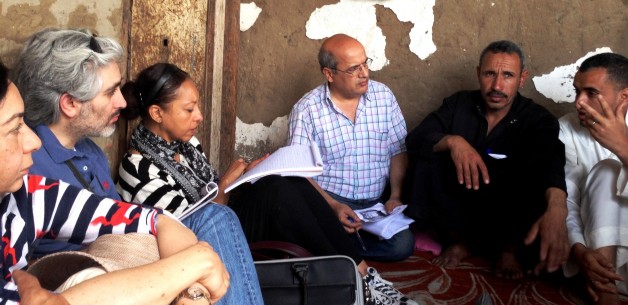Community discussion on a World Bank Inspection Panel case in Egypt
Last week, Senate Appropriators sent a strong message to the World Bank in support of the institution’s Independent Accountability Mechanisms (IAMs). The FY19 State & Foreign Operations Appropriations bill that was approved by the Appropriations Committee not only recommends fully funding the U.S. contribution to IDA18, which supports the world’s poorest countries, it also allocates an additional $2 million for the World Bank Group’s IAMs that are responsible for holding the institution accountable when its projects result in harm.
The World Bank Board of Directors is currently reviewing the toolkit of the Inspection Panel, the first accountability mechanism to be created by an International Financial Institution in the early 1990s—largely due to pressure from Congress. The review is welcome as the Panel’s toolkit has remained mostly unchanged since its inception despite the establishment of similar mechanisms at other IFIs with much broader mandates. If the Board agrees that the Panel should update its toolkit with important functions such as dispute resolution and monitoring—tools that are currently available to mechanisms that have since been created at the other IFIs—this additional funding would be critical as the Panel will require more specialized staff and dedicated resources.
The bill also carves out funding for the Compliance Advisor Ombudsman (CAO), the mechanism responsible for projects supported by the Bank’s private sector arms. Additional funding for the CAO will undoubtedly provide a boost to the mechanism that is facing more and more requests for both compliance investigations and dispute resolution—a tool it already has in its kit. While the CAO’s mandate is broader than the Panel’s, its authority to hold companies and the IFC accountable is also limited—it cannot require IFC or companies to remedy harms caused by their projects, for example. This renewed support by Congress for the mechanisms should be viewed as an opportunity for strengthening its mandate as well.
The bill has not yet become law, but the additional funding for the mechanisms coupled with a fully funded IDA contribution sends a clear message that the U.S. Congress intends to remain engaged in the institution, and will continue to support strong U.S. leadership at the World Bank that is based on principles of transparency and accountability.

